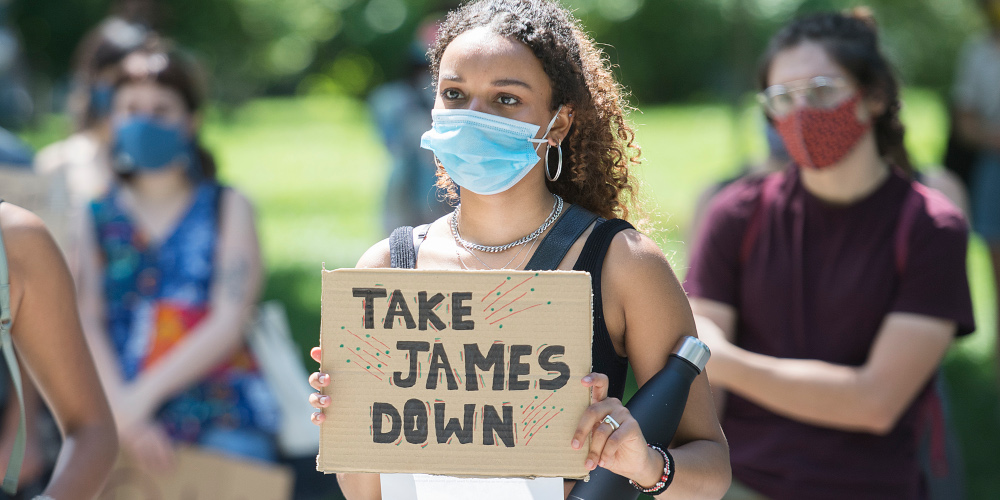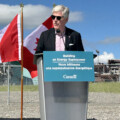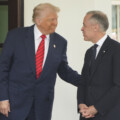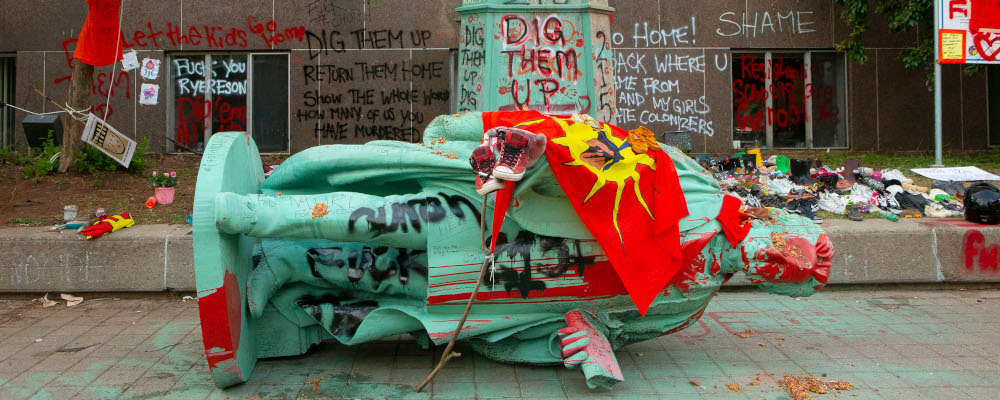Across the country, the “decolonization” of curricula, and indeed universities themselves, is being advocated as necessary and adopted with seemingly little resistance. The most recent high-profile example of this is Concordia University, which released a five-year strategic decolonization implementation plan. Its priorities, among others, are to “critically evaluate and decentre Eurocentric knowledge systems across all academic programs university-wide.” Moreover, this is to be achieved by “cultivating a ‘collective critical consciousness.’”
Universities receive large amounts of public money. Unlike private sector companies, political parties, or non-governmental organizations, they are funded to provide society with a neutral and disinterested perspective on the world and how it functions.
Academic freedom enables universities to fulfill this role and their missions as truth-seeking institutions. It does so by protecting professors from universities interfering in their scholarly activities. It’s necessary because it frees professors to openly pursue, teach, analyze, and debate important questions, even those that might challenge the status quo.

This allows for the rejection of wrong ideas while strengthening our understanding of truthful ideas. It has been an important ingredient to the secret sauce that has contributed to the incredible advances in knowledge since at least the Enlightenment.
Academic freedom is most commonly associated with the right of professors to express themselves without suffering repercussions from their universities on topics considered to be controversial. In this respect, it is epitomized by the well-known “Chicago Principles.”
Equally important for academic freedom is the political neutrality of universities. This is essential not only because universities are publicly funded, but because non-neutrality itself impinges on academic freedom. In fact, the University of Chicago also articulated this important principle in its Kalven Report.
When universities take political positions or support political causes, they implicitly and, often explicitly, interfere in the teaching, research, and commentary functions of those who work there. If you were a professor and your university took a public position on a topic, would you feel more or less free to teach, comment on, or pursue research that comes to different conclusions than those of your university?
Some argue that universities have a right and even an obligation to influence teaching and research through training on the use of new equipment and technologies, or perhaps best practices. This may be true if done neutrally. But what if the university insists on promoting political ideologies in teaching and research?
This question is central to discussions around “decolonization.” While many things could be said about the notion of decolonization and the Concordia implementation plan, it’s difficult to argue they are politically neutral.
The first sign giving the game away is the word “critical.” This is not “critical” as in critical thinking that we expect to be at the centre of a university education. No, critical here refers to “Critical Social Justice.” It’s a mix of neo-Marxist “critical theory” and postmodern theory. Its aims are variously to disrupt and subvert society with no less a goal than overthrowing Western Civilization.
If that doesn’t seem political enough, the term “critical consciousness” comes directly from the influential neo-Marxist educational theorist Paulo Freire. Freire believed that education was an inherently political act and that it should be undertaken to cultivate the critical (i.e. neo-Marxist) consciousness of students with the aim of turning them into revolutionaries.

The term “decolonization” draws on the same “critical” roots as Freire through well-known post-colonial theorists like Edward Said and, most relevant here, Frantz Fanon. Fanon was a Marxist decolonial theorist. Among other things, he is known for having justified and defended the use of violence and terrorism in conflict against “colonizers.” If he was not the intellectual inspiration for Hamas on October 7th, he is for many sympathizers of Hamas on university campuses across Canada.
As such, Concordia’s decolonization plan (as well as other decolonization initiatives at universities across the country), with its reach “across all academic programs university-wide,” seeks to advocate for, and directly impose, a radical political ideology onto university teaching and curriculum. It also implicitly imposes the ideology on research and public commentary. But these activities are exactly what academic freedom is intended to protect—even from universities themselves.
Such interference is antithetical to the entire mission of the university as a dispassionate, rational, truth-seeking institution. And besides violating academic freedom, these initiatives betray the public’s trust. Moreover, the vast majority of the Canadian public appears to disagree with the ideology inherent in these initiatives.
Since universities function and are funded at the pleasure of the public, they should refrain from undermining their core functions through the imposition of radical ideologies on faculty and students—unless, that is, they seek to be defunded.
Recommended for You

Many young Canadians will never earn more than their parents due to social mobility barriers: Report

Letter to a minister: Canada’s long-term prosperity depends on maximizing our resource potential

The Week in Polling: Liberals and Conservatives neck and neck; American trust in mainstream media hits all-time low; Canadians overwhelmingly reject becoming Americans

‘We’re careening towards a moment of truth’: The Roundtable on the state of the economy and the perils of pipeline politics



